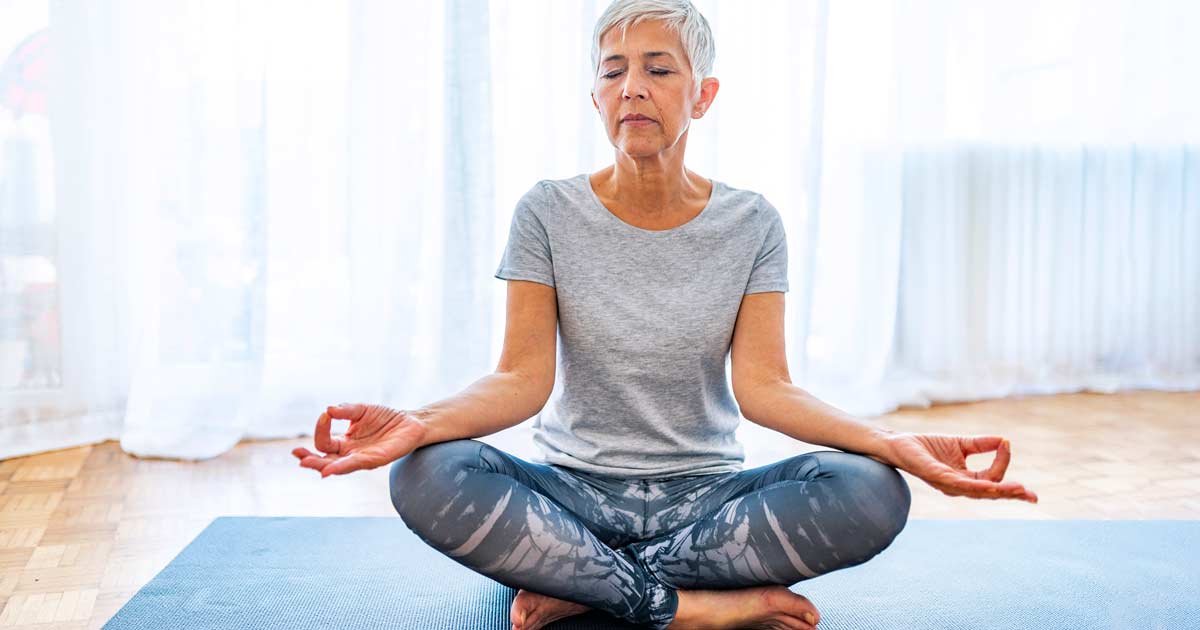Staying physically healthy is essential to seniors living long and fulfilling lives, but staying emotionally healthy is also key since poor mental health can have dire physical repercussions. After almost a year of the COVID-19 pandemic, it may seem harder to stay emotionally healthy than it once was, but there are simple things seniors can do. Take a look at these 5 ways seniors can improve their emotional health as they age.
-
Get connected (or reconnected!)
The past year has taken a toll on relationships, especially for seniors who have been isolated from friends and family for their own protection. Fewer in-person visits can make the days long and hasten feelings of loneliness. But even when we cannot meet live, there are many ways to reach out to friends and loved ones, rather than waiting for them to contact you.
Start with the good old telephone. Take a look at your call history to see how long it’s been since you spoke to those closest to you and start calling. You might be surprised how happy people are to hear from you and to also feel a little less isolated themselves.
For those who use the internet and have appropriate technology at hand, video visits have become so simple everyone of every age can take part. Among the choices are Skype, Zoom (great for groups), Facebook Messenger, and FaceTime (for iPhone/iPad/Mac). Not sure which is best? Check out the Tom’s Guide blog, “Best video chat apps in 2021.”
-
Exercise, mediation and yoga for senior health
Exercise is one of the greatest chores for seniors, especially during the winter. But exercise has so many benefits it’s well worth finding ways to get it without even going out. According to the National Institute on Aging’s article, “The Emotional Benefits of Exercise,” exercise can:
- “Reduce feelings of depression and stress.
- Enhance your mood and overall emotional well-being.
- Increase your energy level.
- Improve sleep.”
Movement is exercise and can include walking, biking (including stationary bikes) dancing, yoga, or tai-chi. For those new to yoga and tai-chi consider a YouTube video to get you going.
Mediation is another practice that has shown promise for maintaining emotional health. Although there is no final conclusive proof of mediation’s benefits, studies have shown it can have numerous benefits. The National Center for Complementary and Integrative Health’s, article, “Mediation: In Depth,” discusses how medication helps and its safety and possible side effects.
-
Start (or resume) a journal
Sometimes just putting pen to paper can have a cathartic effect. Writing down memories, recording feelings and thoughts, or just writing about the day can give seniors a sense of purpose, create a routine, and help keep the brain agile.
For those who kept a journal or diary in years gone by, now is a great time to pick up where they left off. Even if it’s been years, taking the time to recall past life events, even mistakes made, can provide feelings of fulfillment or release. A journal can also bring out the artist in seniors who can feel free to sketch or doodle whatever comes to mind. For the aspiring novelist, a journal can be a great way to begin that memoir or autobiography and stop procrastinating.
Learn more about journaling in the LTC Tree, blog, “Benefits in Journaling for Seniors.” For those who don’t know how or where to begin, try borrowing from the Thought Catalog, blog “Here Are The 50 Best Journaling Prompts You Will Ever Read Or Need.”
-
Use your head
In addition to exercising the body, putting your brain to work can go a long way toward good emotional health. For those with internet access, there are many, many online brain games and puzzles available for free. These are not only challenging but fun and can give seniors a feeling of accomplishment. Try AARP’s game page for some great ideas.
Life-long learning is another great way to sharpen the brain, but it doesn’t have to be just the academic variety. Starting a new hobby often requires a little research and ongoing education whether it’s gardening, genealogy, or learning a new language. Get some great ideas in the Road Scholar blog, “12 Best Retirement Hobbies: A List of Pastimes for Seniors.”
There are many ways to keep the brain agile, regardless of age. For more, the Harvard Health Publishing article, “7 ways to keep your memory sharp at any age” offers a wealth of information.
-
Pursue Happiness
Being happy isn’t just something that occurs when life is good, it can actually be a choice. And choosing to be happy can have emotional as well as physical benefits. Like the old saying, “Is the glass half full or half empty?” we humans have the option of choosing to be pessimistic or optimistic. Choosing the later can mean not only feeling better, but making others feel better too! Find out more about ways to pursue happiness in the Healthline blog, “How to Be Happy: 25 Habits to Add to Your Routine.”
Seniors have many ways to become emotionally healthy and one is to live where they are happiest. At Ganton’s Countryside, we offer all the amenities needed to make life easier, safer and more fun for seniors. For more information about Countryside, please call Margaret Nagel at (517) 206-5000 or download our brochure to learn about our care levels, cost, and amenities.


